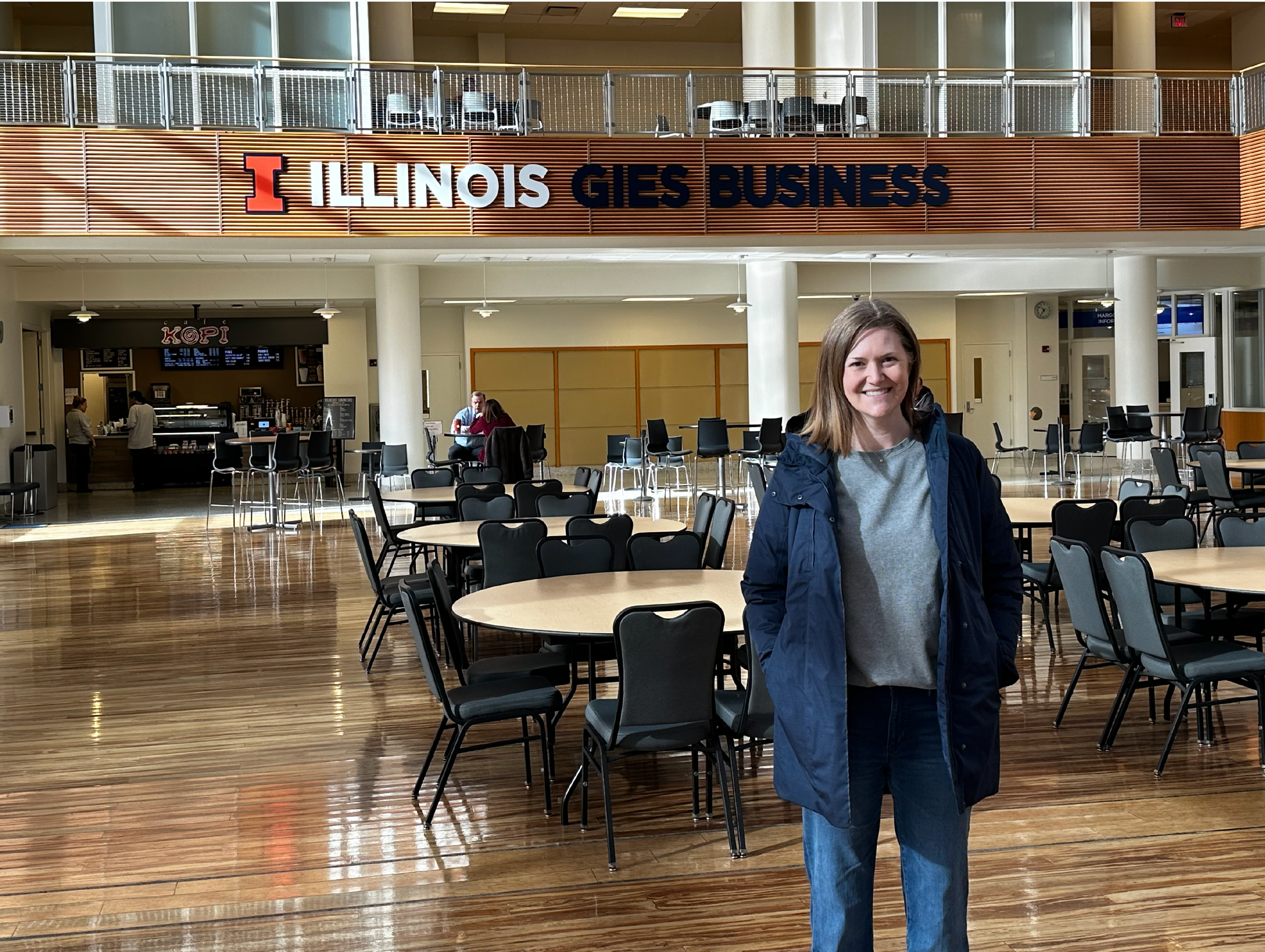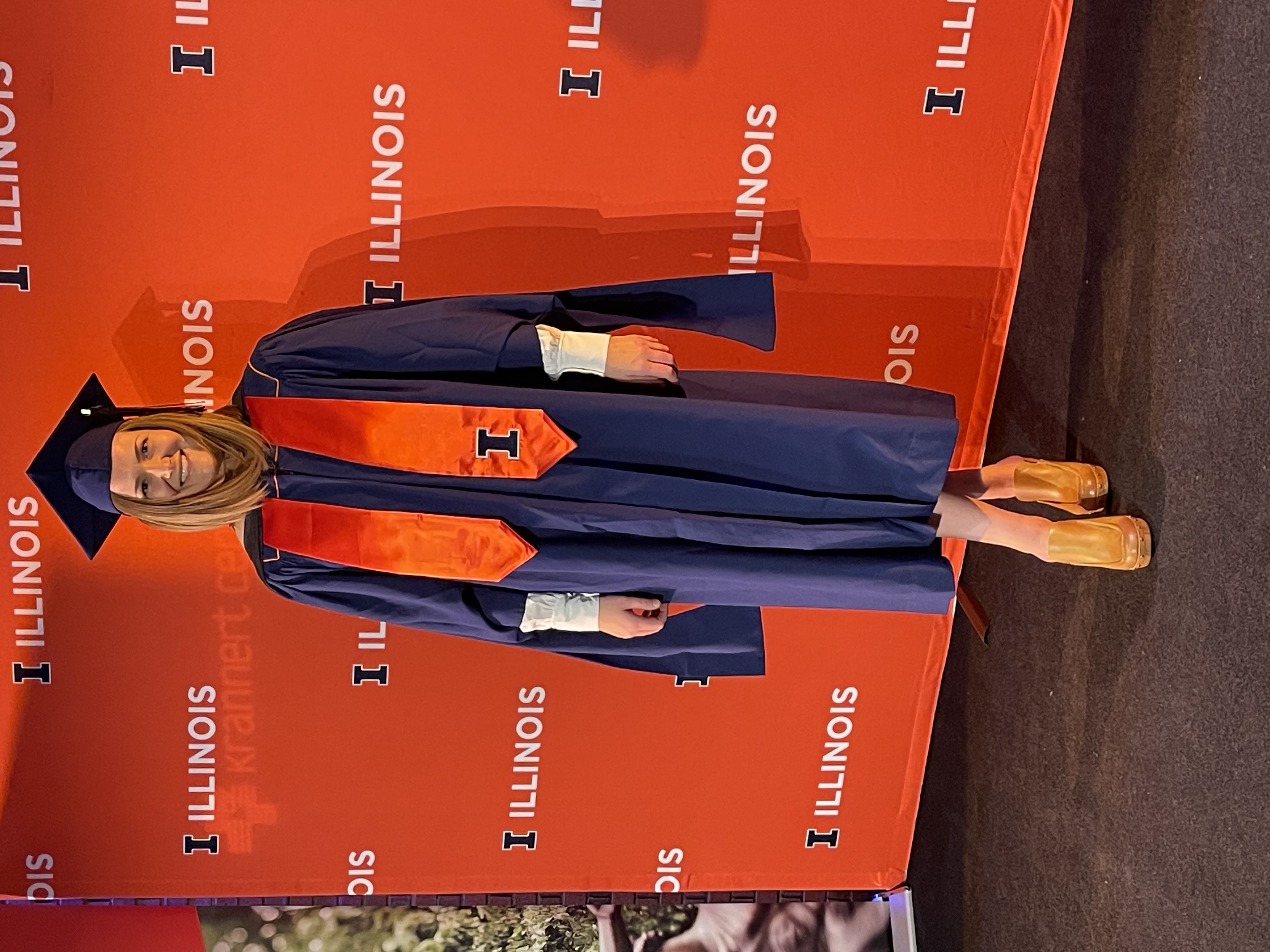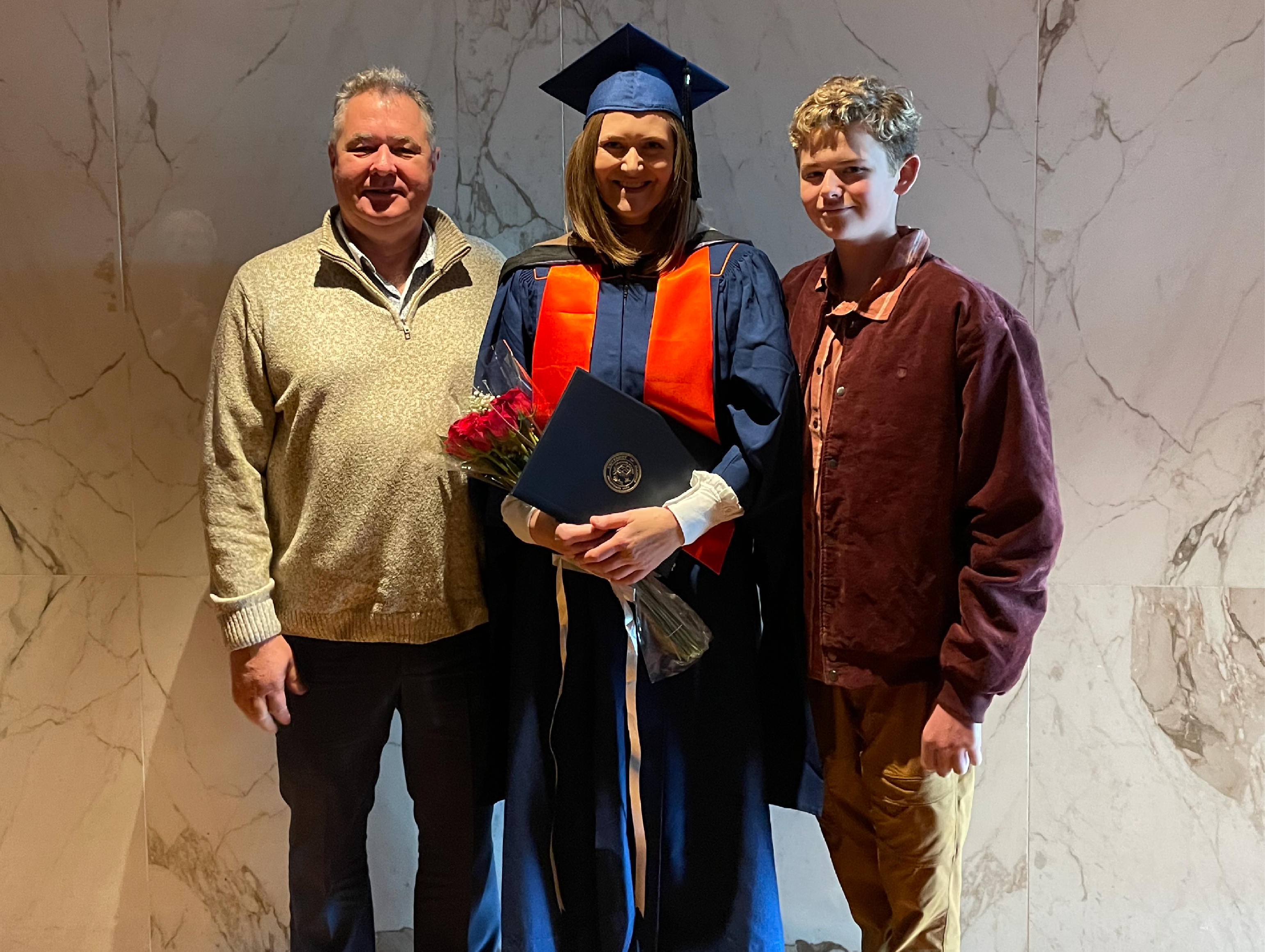Jan 11
![]()
WMG Controller Kara Camper is a Long Beach native, born and raised in Long Beach, attended California State University Long Beach and graduated in 2002 with a bachelor’s degree in Psychology.
During college, Kara also worked as an assistant at a local business. “The business allowed me to keep growing,” Kara says. “I found my position changing as the business grew, and eventually became Office Manager and then Controller, acting as the CEO’s right-hand.” In this way, Kara gained most of her business experience first-hand through hard work and meeting challenging situations head-on. The owner of the business was also a woman who took every opportunity to educate and promote women, and this contributed to Kara’s on-the-job education by giving her insight into women in business.
Then, after almost 20 years, “I hit a wall,” Kara says. On both (personal and professional) levels, I needed new challenges.”
Kara’s son was 9 going on 10 at the time, and she and her family had a stable income provided by her husband’s career. Kara decided to resign from her professional position and spend more time with her son as he entered the next stage of his development.
And then, COVID-19 struck.Two months after Kara resigned, we were all locked down and stuck in our homes. While Quarantine gave Kara the one-on-one time with her son that she had craved in the past, she also had never been a stay-at-home mom before. The downtime left her itching for another challenge and wondering…what’s next?
“I was terrified,” Kara says. “I had been at the same job for 20 years. I knew I wanted to take a next step of some sort. But I was terrified that my skillset wouldn’t translate.”
Impostor Syndrome among women was first discovered as a psychological phenomenon in the late 1970’s by psychologists Pauline Rose Clance and Suzanne Imes. Their pivotal study on high-achieving women revealed a serious lack of confidence the majority of high-achieving women in their sample set, with many women believing they were not qualified enough and simply not smart enough to perform their jobs adequately. Clance and Imes wrote in their findings that, “despite outstanding academic and professional accomplishments, women who experience the imposter phenomenon persist in believing that they are really not bright and have fooled anyone who thinks otherwise.”
Almost half a century later, women in the workforce still struggle with Impostor Syndrome in a big way. While the psychological condition affects men as well as women, men tend to underperform in response to beliefs of inadequacy, while women tend to work harder in response to the same beliefs. The biggest detrimental consequence of this impetus to over-achieve in response to Impostor Syndrome is it does nothing to eliminate the feelings of inadequacy and the anxiety caused by them. This leads to depression and burnout in women in the workplace.
“Then I thought…I’ve always wanted to get my Masters Degree…” Kara says. “I realized I had the whole second half of my professional life ahead of me.”
“I decided I wasn’t going to let ‘You can’t have it all,’ thinking limit me. I wanted it all. I wanted to be Super Mom, and I also wanted to still support my family and help us create a better life. So I started looking at the Big Picture.”
Kara enrolled in the Master of Business Administration program at the University of Illinois at Urbana-Champaign, and began taking classes online in January of 2021.
And this was when things started to happen quickly…
Less than a year into her studies, Kara was recruited by WMG. “I had been so afraid that my skillset wouldn’t translate into the modern business world, but here was this amazing, woman-owned business recruiting me because of my skillset, not in spite of it. They didn’t need me to be better educated or be anything other than what I was.”
Kara accepted the position with WMG, and she continued her studies at the University of Illinois online.
Then, 3 weeks after accepting the offer with WMG, Kara was diagnosed with breast cancer.
“You can imagine the shock and the anxiety I experienced with the diagnosis. But Lauren (Weinbaum, Founder of WMG) was great about it. I had to take time off and on during my surgeries, and Lauren provided so much understanding and support. The compassion and empathy Lauren showed was enormous” Kara underwent her first surgery in late 2021.
Fast-forward to January 2024, and Kara is wonderfully cancer-free. She thrives in her position as Controller at WMG, and she graduated with her MBA from University of Illinois on December 15th, 2023. “I love that the date I had my Mastectomy is the same date that I graduated,” Kara says. Both milestones fall on December 15th.
![]()
![]()
![]()
While Kara’s story is inspiring to women in the workforce, she acknowledges that not everyone has it so good.
“It was hard work. And not everyone has a husband who is so incredibly supportive like mine, or a boss who is so positive and supportive like Lauren.”
For those who want it all - and have the confidence to get there - here are some of Kara’s tips for success in juggling work, family, higher-education, and being a woman in the workforce:
Thank you, Kara, for sharing your story. We value you and your contribution to WMG.
References:
Clance & Imes Study 1978, Harvard Business Review, Forbes, Entrepreneur
Share: LinkedIn, Facebook
-> View all blog posts
We are WMG: Get to Know Kara Camper, Controller

WMG Controller Kara Camper is a Long Beach native, born and raised in Long Beach, attended California State University Long Beach and graduated in 2002 with a bachelor’s degree in Psychology.
During college, Kara also worked as an assistant at a local business. “The business allowed me to keep growing,” Kara says. “I found my position changing as the business grew, and eventually became Office Manager and then Controller, acting as the CEO’s right-hand.” In this way, Kara gained most of her business experience first-hand through hard work and meeting challenging situations head-on. The owner of the business was also a woman who took every opportunity to educate and promote women, and this contributed to Kara’s on-the-job education by giving her insight into women in business.
Then, after almost 20 years, “I hit a wall,” Kara says. On both (personal and professional) levels, I needed new challenges.”
Kara’s son was 9 going on 10 at the time, and she and her family had a stable income provided by her husband’s career. Kara decided to resign from her professional position and spend more time with her son as he entered the next stage of his development.
And then, COVID-19 struck.Two months after Kara resigned, we were all locked down and stuck in our homes. While Quarantine gave Kara the one-on-one time with her son that she had craved in the past, she also had never been a stay-at-home mom before. The downtime left her itching for another challenge and wondering…what’s next?
“I was terrified,” Kara says. “I had been at the same job for 20 years. I knew I wanted to take a next step of some sort. But I was terrified that my skillset wouldn’t translate.”
Impostor Syndrome among women was first discovered as a psychological phenomenon in the late 1970’s by psychologists Pauline Rose Clance and Suzanne Imes. Their pivotal study on high-achieving women revealed a serious lack of confidence the majority of high-achieving women in their sample set, with many women believing they were not qualified enough and simply not smart enough to perform their jobs adequately. Clance and Imes wrote in their findings that, “despite outstanding academic and professional accomplishments, women who experience the imposter phenomenon persist in believing that they are really not bright and have fooled anyone who thinks otherwise.”
Almost half a century later, women in the workforce still struggle with Impostor Syndrome in a big way. While the psychological condition affects men as well as women, men tend to underperform in response to beliefs of inadequacy, while women tend to work harder in response to the same beliefs. The biggest detrimental consequence of this impetus to over-achieve in response to Impostor Syndrome is it does nothing to eliminate the feelings of inadequacy and the anxiety caused by them. This leads to depression and burnout in women in the workplace.
“Then I thought…I’ve always wanted to get my Masters Degree…” Kara says. “I realized I had the whole second half of my professional life ahead of me.”
“I decided I wasn’t going to let ‘You can’t have it all,’ thinking limit me. I wanted it all. I wanted to be Super Mom, and I also wanted to still support my family and help us create a better life. So I started looking at the Big Picture.”
Kara enrolled in the Master of Business Administration program at the University of Illinois at Urbana-Champaign, and began taking classes online in January of 2021.
And this was when things started to happen quickly…
Less than a year into her studies, Kara was recruited by WMG. “I had been so afraid that my skillset wouldn’t translate into the modern business world, but here was this amazing, woman-owned business recruiting me because of my skillset, not in spite of it. They didn’t need me to be better educated or be anything other than what I was.”
Kara accepted the position with WMG, and she continued her studies at the University of Illinois online.
Then, 3 weeks after accepting the offer with WMG, Kara was diagnosed with breast cancer.
“You can imagine the shock and the anxiety I experienced with the diagnosis. But Lauren (Weinbaum, Founder of WMG) was great about it. I had to take time off and on during my surgeries, and Lauren provided so much understanding and support. The compassion and empathy Lauren showed was enormous” Kara underwent her first surgery in late 2021.
Fast-forward to January 2024, and Kara is wonderfully cancer-free. She thrives in her position as Controller at WMG, and she graduated with her MBA from University of Illinois on December 15th, 2023. “I love that the date I had my Mastectomy is the same date that I graduated,” Kara says. Both milestones fall on December 15th.



While Kara’s story is inspiring to women in the workforce, she acknowledges that not everyone has it so good.
“It was hard work. And not everyone has a husband who is so incredibly supportive like mine, or a boss who is so positive and supportive like Lauren.”
For those who want it all - and have the confidence to get there - here are some of Kara’s tips for success in juggling work, family, higher-education, and being a woman in the workforce:
- “I found the right program for me.” Kara looked for very specific things in her MBA program. “The iMBA program at the University of Illinois treated us like who we were - working professionals with families. They structured the program so that we were set up for success.”
- Find a program with flexible time management expectations. “Our work was usually due on a Tuesday, which meant we had the whole weekend to complete assignments. That’s important when you’re working a day job. They also offered live sessions every week, three times a day, and they were recorded and posted as well, so you could watch them on your own time as needed. That was great for people who had kids, because you could watch it after they went to bed if you needed to.”
- Look for a program that has obviously invested in their Tech. “The studios the professors recorded in, the audio, the learning platforms were all excellent in my program. It’s important, because you’re spending a lot of time and resources on this education. Choose a school that understands that.”
- Do it all, but within reason. “I started out with guns blazin’ and was taking 2 classes every -8-week block. I obviously had to modify that once I took my new position at WMG.”
- Keep it flexible. “I often did a bit of work when my son was at water polo practice, and then we did the teamwork over the weekends.”
- Lean into technology. “We utilized Microsoft Teams and Facebook Workforce to complete assignments. This helped divide and conquer as a team, so no one had to do the whole project by themselves. It also allowed us to connect, chat and share experiences”
- Work on challenging the belief that as a woman you need to be one thing or another. “I think there is something that’s baked into our culture…you know, men had a head start, and we (women) have always had to try to find a way to operate around it. We as a gender had to make a decision when we entered the workforce - do you want to be a mom or be a career person? And (the fallacy is) if I’m a career person, if I am not in power-suit mode, I am not being taken seriously. I think we got off on the wrong foot when women got into the workforce thinking we had to be one thing or the other. We can have it all.”
Thank you, Kara, for sharing your story. We value you and your contribution to WMG.
References:
Clance & Imes Study 1978, Harvard Business Review, Forbes, Entrepreneur
Share: LinkedIn, Facebook
-> View all blog posts